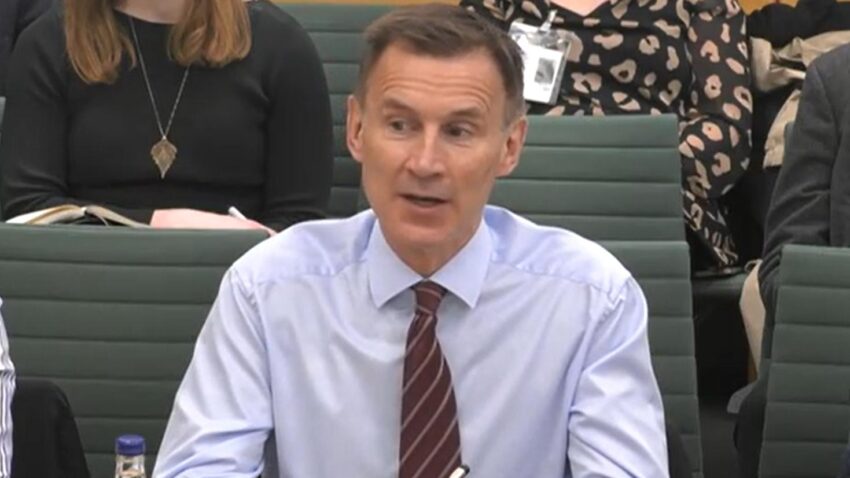
A leading group of City figures are urging the chancellor to accelerate pensions reform, hand a competitiveness objective to the audit watchdog and incentivise retail investors to back British companies “at a critical pivot point… [for] the economy”.
The chancellor has been sent a letter from the Capital Markets Industry Taskforce (CMIT), an influential panel chaired by Julia Hoggett, the London Stock Exchange chief executive, which calls on Jeremy Hunt to advance his financial services programme in next week’s autumn statement.
In the wide-ranging letter, CMIT warned that British companies were being starved of domestic investment, saying: “The UK has remarkable companies and remarkable potential, but we do not invest in ourselves.”
CMIT, which was established last year to strengthen the competitive position of Britain’s capital markets amid concerns that fast-growing companies are increasingly being tempted to list overseas, includes the chairman of GlaxoSmithKline and chief executives of Phoenix Group and Schroders among its members.
In its letter to Mr Hunt, the taskforce said that Britain now saw far lower domestic investment by UK-based pension funds in domestic capital markets than other G7 countries.
“Capital markets exist to finance the economy, they are founded in many jurisdictions across the world on a strong domestic investor base that invests in its own economy and is incentivised to do so,” the letter said.
While countries such as Canada, Japan and France were significantly overweight when comparing their allocation to equities to the size of their own stock markets, the UK is now substantially underweight, CMIT said.
It added that the issue was not restricted to public markets, telling the chancellor that in 2021, a Canadian pension fund invested more in one UK private company than the entire UK pensions industry invested in all UK private companies in the same year.
One member of CMIT told Business Matters that the situation had become “urgent” and required immediate attention from the Treasury to build on pension reforms unveiled in Mr Hunt’s Mansion House speech earlier this year.
The issue has acquired greater impetus as a consequence of companies such as Flutter Entertainment, the FTSE-100 gambling group, announcing that it would move its primary listing to the US.
Meanwhile, ARM Holdings, the chip designer, has floated in New York rather than London, despite being a British technology champion.
The CMIT letter warned Mr Hunt that this trend was likely to continue without “proactive policy” attempting to halt it.
“The withdrawal of domestic capital starves our companies of financing, diverts UK tax-payer support to investments in non-domestic companies and ultimately impacts the efficacy of our markets,” it said.
“It also disproportionately impacts smaller and medium sized companies listed on our markets.”
CMIT argued that the Financial Reporting Council should be handed a formal competitiveness objective, complementing those of the City and banking watchdogs.
“This will ensure that the future design of our corporate governance and stewardship regimes takes into account not just good governance and stewardship, but also the attractiveness of the UK capital markets for both existing and potential domestic and international issuers, as well as domestic and international investors,” it added.
The taskforce encouraged Mr Hunt to complete his Mansion House reforms in the autumn statement by facilitating the consolidation of defined contribution pension schemes, and establishing a ‘British ISA’ that would incentivise retail savers to invest in UK-based companies.
It said an independent expert should be asked to compile a report monitoring the extent of UK pension fund investment in domestic companies.